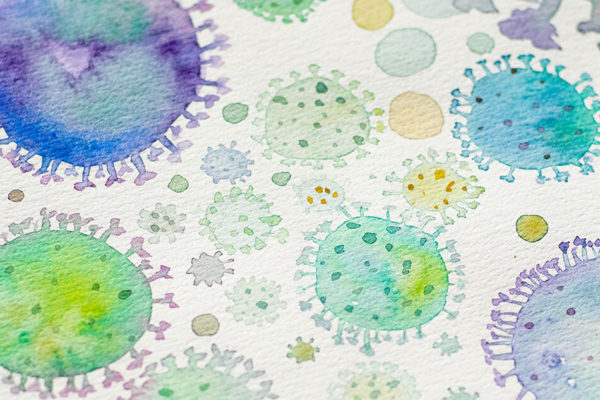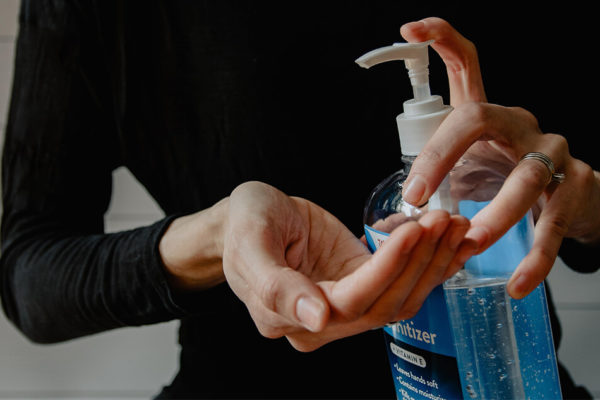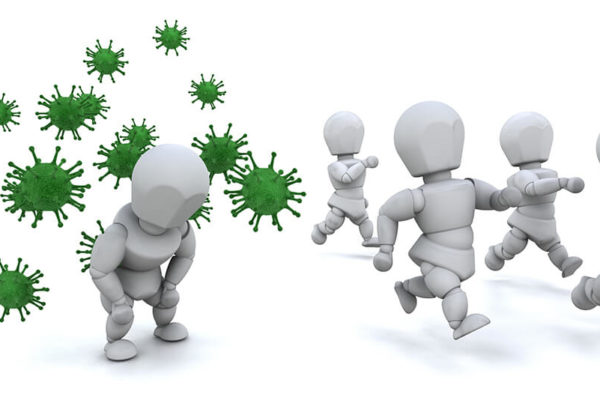It’s hard to predict how the Corona Virus will react to changing weather parameters; also ever since its emergence, it has been a subject of on and off debate across the world. Earlier, global scientists and doctors were anticipating a significant drop in COVID-19 influence during the summers, but the truth was far from reality. In fact, during the peak summer months-May and June, we saw a considerable rise in the number of cases. And with that, all the hopes of coronavirus vanishing in the hottest months in India faded away.
Many viruses have been known to be seasonal. For example, influenza occurs mainly during winters or when the temperature drops. Similarly, measles and chickenpox happen due to a rise in temperature. Now with the arrival of monsoon in the country, many people have started wondering if the rains will wash away the fatal virus or is it yet another factor that would favour the spread of the infection. The answer is still uncertain.
Factors linking coronavirus spread with humidity
Three reasons are considered to be favorable for coronavirus during monsoon – seasonal changes, human behavioral patterns and virus’ characteristics. Before progressing towards the three factors, let’s first understand what bioaerosol is. It is a collection of bacteria, viruses, fungi and other germs in solid or liquid particles suspended in the air. It is suspected to be the etiological agent for respiratory diseases and infections such as asthma, influenza, SARS, pneumonia, tuberculosis, etc. The increase in humidity is directly proportional to the growth of bioaerosol. Let’s read further about the three factors and the linkage between humidity and coronavirus spread during monsoon:
- Humidity increases during the monsoon, serving as a favourable condition for the virus to remain active for a longer duration. The increase in moisture may serve as a suitable condition for the transmission of bioaerosols which are difficult to kill or \remove.
- Seasonal diseases like dengue and malaria may lead to an increase in the number of patients putting up extra pressure on the healthcare infrastructure of the country. It may affect the spread of infection and hence AMR (Antimicrobial Resistance) which could worsen the already worse situation.
- Masks are given vital significance to stop the coronavirus spread. But people travelling on two-wheelers or walking on feet have the chances of having their masks drenched in water whereas specialists advise of using dry masks. On the other hand, using a mask in humid temperatures is a difficult task, altogether.
According to a study by IIT, Bombay, humidity can enhance the spread of coronavirus. Researchers examined the droplets released by COVID-19 patients via cough or sneeze. The study indicates that while the hot and dry weather evaporates the droplets quickly, reducing the risk of further spread, humidity helps the virus to survive longer and spread even faster.
How to avoid the dangers?
While no conclusion has been drawn yet on the extent to which the seasonal changes affect the spread of coronavirus, one thing is clear – more than one factors affect the spread of this deadly virus and weather can’t stop or spike its pace alone.
The linkage appears to be serious, but there’s one silver lining. Spitting on the roads may not be a factor influencing the spread of coronavirus, as the rain washes away the infected droplets. Also, people tend to remain indoors more, and the use of AC also reduces significantly because of low temperature, limiting the transmission to a certain extent.
However, there’s no crucial evidence to support any argument, and the subject remains highly debatable. Washing hands regularly, maintaining hygienic standards and following social distancing norms would work but only for a short duration.
Therefore, EcoBactiX is the best way of prevention. EcoBactiX is a disinfecting solution invented by Framtix Holdings AB. Even a thin layer of EcoBactiX, when applied, on the inanimate surfaces, will help in curbing the current problem on a massive scale. A place that attracts larger gatherings such as school, religious space, hospital, public transport, etc. is prone to the growth of microbes. An antimicrobial layer of EcoBactiX will prevent the coronavirus from spreading even in unpredictable weather conditions. Also, a thin coating of EcoBactiX lasts up to two years, reducing the annual maintenance and the expenses behind it considerably.





